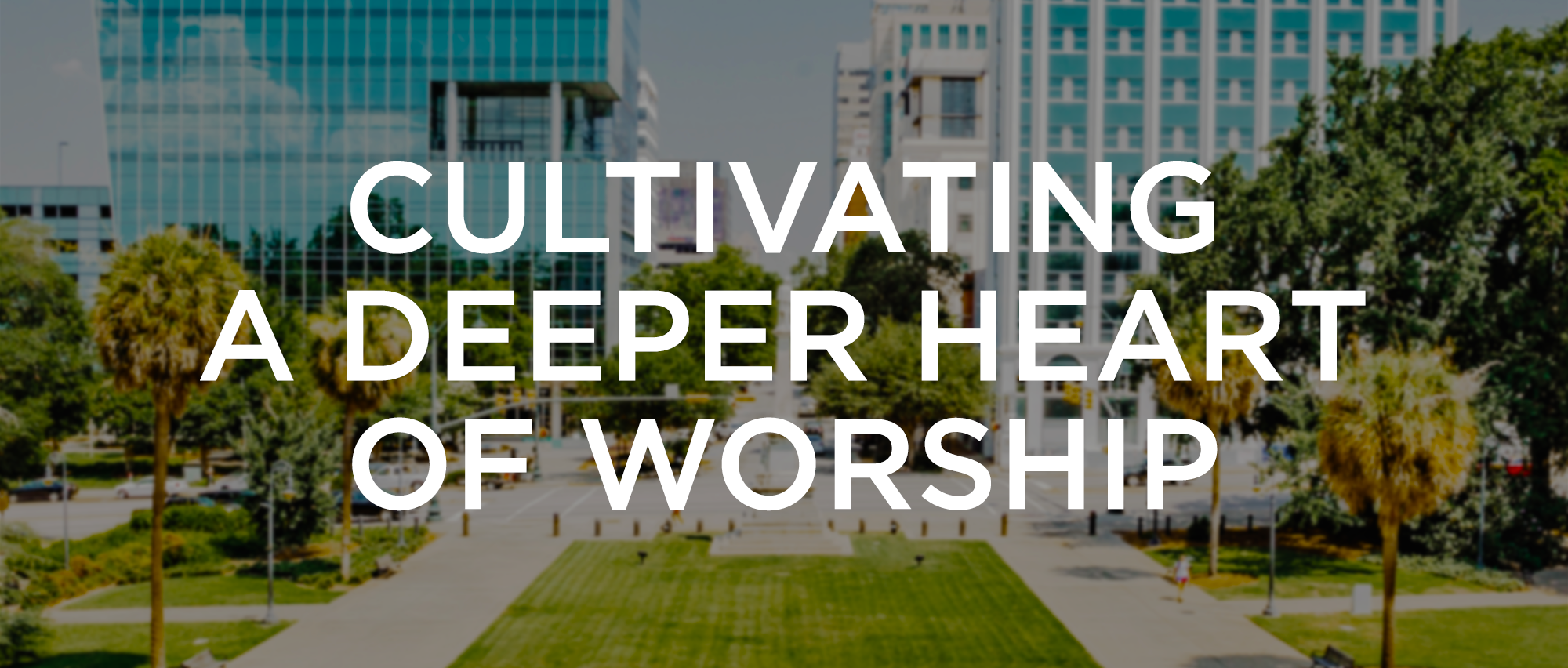We love watching people get baptized at our church proclaiming that Jesus is King. We watch them physically get into a pool, get baptized in water, rise up declaring they were dead in sin, and now alive in Christ. They were covered in sin, but are now washed clean.
This is not an uncommon idea in the Scriptures. God commands us to do with our bodies things that reflect and enact internal reality He’s working in our spirit.
Baptism is one example.
Communion is another. Jesus could have said, “As often as you think of me, imagine bread broken that represents my body and wine that represents my blood.” But He didn’t say that. He said, “Take and eat. Drink. Physically remember with your body that I am your portion, your fill, your satisfaction. That my body broken and blood poured for you is just as vital for life as food and drink are to your body.”
Confession is another. When it comes to faith, God could have said just believe in me. That’s all. But that’s not what the Scripture says. Romans 10:9 - “if you confess with your mouth that Jesus is Lord and believe in your heart that God raised him from the dead, you will be saved.”
The Psalms are full of commands and descriptions of responding with our bodies:
Psalm 95:6
Oh come, let us worship and bow down; let us kneel before the Lord, our Maker!
Psalm 134:2
Lift up your hands… and bless the Lord!
Psalm 149:3
Let them praise his name with dancing,
Psalm 5:7
Through the abundance of your steadfast love, I will enter your house. I will bow down toward your holy temple in reverence.
The point is what we do with our bodies matters because we are embodied spirits. We all know this and have a category for this in all kinds of negative commands. Don’t murder. Don’t steal. Don’t commit adultery.
But we don’t always have a good working category for the positive commands - to use your body to shape your internal world.
Sometimes this can be hard or feel weird for us because we’re worried about authenticity and not doing anything that doesn’t feel right.
But it’s not only that external responses to internal reality - although they do often serve as that - it’s that our external responses help shape our internal reality. Our obedience to respond in these ways isn’t only always “inside-out” in that, we only ever respond from what we feel happening internally. Often times, we are called to respond externally first, to help us learn to respond internally on a heart level.
So when we take communion, we are physically/externally responding to a spiritual reality. We take the bread and wine, ask God to help us remember, and believe. It’s both a response to an internal heart level change and an opportunity to cultivate that heart as well.
Jesus tells us when we’re stuck in materialism and lack generosity, we should give as an act of obedience. Obedience with our bodies helps us cultivate a more generous heart because we are embodied spirits - our hearts and our bodies move together.
One translation of Psalm 34:1 - I will praise the Lord no matter what happens. Not just when I’m feeling it. But no matter what.
We know we shouldn’t strike out in violence even if we do feel like it. And in the same way, we should sing and rejoice even if we don’t feel like it.
Below are a few ways we can use our bodies to cultivate a deeper heart posture of worship:
1 - Lifting Hands
Psalm 134:2
Lift up your hands… and bless the Lord!
By lifting up our hands we’re saying - “God, I need you. My hands are empty. I need your grace. I need you to provide for me. I need your presence even if I don’t believe it right now in this moment. Help me push back against the unreality that you are distant from me.”
2 - Laying or Kneeling
One-hundred and thirty-one times in the Bible people are described or commanded to kneel or lay down and lie prostrate before God. If I had to guess this isn’t a common posture that we have, but if we read the Bible, it’s a position that we will find ourselves in when we meet Jesus. (Such passages include Ps. 22:28-29, Ps. 22:27, Ps. 29:2, Ps. 45:11, Ps 66:4, Ps. 72:11, Ps. 86:9, Ps 95:6, Ps 96:9, Ps 99:5).
This was the response when someone came into the presence of royalty or a King. This is, and will be, the involuntary reaction to being in the presence of God.
We don’t kneel - because we are so humble, but because we want to become humble. We move our bodies into positions of lowliness in order to cultivate an inward reality of humility.
3 - Dancing, Shouting, and Clapping
The final song in the Psalter is one of pure joy and celebration. It’s an anthem fit for the King:
Psalm 150
Praise the Lord!
Praise God in his sanctuary;
praise him in his mighty heavens
Praise him for his mighty deeds;
praise him according to his excellent greatness!
Praise him with trumpet sound;
praise him with lute and harp!
Praise him with tambourine and dance;
praise him with strings and pipe!
Praise him with sounding cymbals;
praise him with loud clashing cymbals!
Let everything that has breath praise the Lord!
Praise the Lord!
As you read the passage, notice the responses. We praise through dance. We praise by getting loud. We praise with every breath of our being. And the call of Ps 34:1 is to get after this type of worship even when you don’t feel like it. We let our bodies help shape our hearts.

